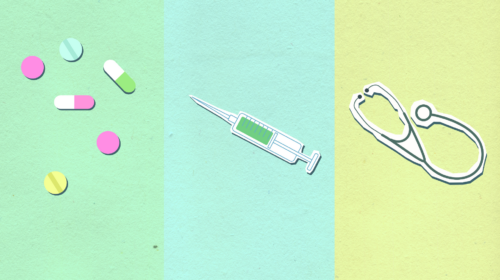Loved ones, friends, and colleagues of drug users are uniquely empowered to recognize signs of drug-seeking behavior and intervene. In many respects, their diligence and attention are the most effective weapon against ongoing drug use that can lead to addiction and eventual overdose. If you know somebody who has a history of drug use or you think maybe falling into a pattern of escalation and dependency, you have more power than you realize to save their lives simply by knowing what to look for. It’s important to realize that drug-seeking behaviors can vary widely, depending upon the user’s individual circumstances, and that someone who might be seeking illegal drugs like heroin may look completely different than someone looking for otherwise legal prescription drugs.
Drug Seeking-Behavior Red Flags for Illicit Substances
As a person uses drugs like cocaine, heroin, or meth more and more, their life becomes increasingly unmanageable and they ultimately have to resort to varying levels of manipulation and deception to conceal and continue their use. Drug users may resort to various methods, not always involving serious crimes, to obtain drugs. Some of the more common drug-seeking behaviors for illegal drugs include:
- Lying and Denial of Use
- Socializing with People for the Sole Purpose of Using
- Trying to Get Money or Rides from Loved Ones without Mentioning Why
- Increasingly High-Risk Sexual Behavior
- Abandoning Work or School to Buy and Use
- Acting Deceptively Nice, Friendly, and Empathetic
- Stealing Money
- Acting Increasingly Anxious and Desperate
- Spending Hours on the Phone or Out of the House with No Explanation
- Theft, Vandalism, Burglary and Other Illegal Activity
These behaviors often coincide with tell-tale physical characteristics, such as skin breakouts, weight changes, sunken eyes, skin discoloration, and more. Drug seekers may also appear antsy and anxious to escape any situation in which their behavior might be questioned, or that will delay the pursuit of their next drug fix. The worse their use gets, the more obvious these behaviors tend to become.
Drug-Seeking Behavior Red Flags for Prescriptions
When it comes to abuse of prescriptions like opioid painkillers and benzos, drug-seeking behavior can be a little harder to identify. Many who wind up abusing prescriptions start off by taking a legitimate supply for a medical or behavioral issue (severe pain, anxiety, depression, etc.). As the opioid crisis has gotten increasingly dire, clinicians have developed an evolving framework for determining drug-seeking behaviors in prescription users. Some of the common “red flags” that doctors may experience include:
- Patients Coming from Far Away
- Doctor-Shopping (Seeing Many Doctors in A Short Period of Time)
- Patients with Records from Several Years Ago
- Using Multiple Pharmacies
- Claiming an Allergy to All Pain Medications Except the Ones They’re Looking for
- Dictating Quantity and Dosage
- Unwillingness to Listen to Doctors or Consider Other Treatments
- Calling Right Before Closing Seeking a Prescription
- Implausible or Nonsensical Explanations for their Visits
Other potential drug-seeking behaviors include heightened awareness of dosing times and seeking alternative sources when a prescribed supply is insufficient or runs out, casually asking to “borrow” a loved one’s supply when theirs runs out, or theft from their medicine cabinet. It’s important that clinicians be able to distinguish between drug seeking and an actual legitimate pain crisis. Drug-seeking behaviors can also be influenced by age, relationship dynamics, and users’ basic intelligence levels.
What to Do If I Notice Drug-Seeking Behavior?
- If You’re A Parent – Talk to your child, take charge, let them know that you know what’s going on, that you’re going to help them, and start exploring treatment right away.
- If You’re A Sibling – Talk to other members of your family about organizing an intervention and getting your loved one help. If you think they’ll respond, confront your brother or sister directly, and let them know that you’re ready to help them and not judge them.
- If You’re a Friend – Tread lightly, but move quickly. Talk to your friend’s loved ones and other members of your social circle about your concerns and see if they can help you take steps toward getting them help. Please keep your personal safety and mental health in mind when dealing with an addicted friend.
- If You’re A Colleague – Talk to your boss about what’s going on and how your colleague’s drug-seeking behaviors are impacting the workplace. Bringing your concerns to your supervisor isn’t “ratting” anyone out; it’s taking action to restore harmony to your workplace and save your loved one’s life.
- If You’re A Boss – Take your employees aside and talk to them about their substance abuse. Offer them support and refer to appropriate company policies and resources for substance abuse, while also considering the legal and ethical implications of their substance use in the workplace. More and more companies are utilizing employee assistance programs for staff struggling with substance abuse. These programs are partnerships between companies that accept certain types of insurance and treatment centers.
Drug-Seeking Behavior Leads to Addiction
If someone you know is exhibiting drug-seeking behaviors, it’s only a matter of time before it gets them into trouble. Whether they cross paths with the wrong people, get behind the wheel of a car when they’re high, get arrested, or suffer an overdose, these tragedies are less likely to occur if someone has their back and recognizes the signs. Contact the Recovery Unplugged admissions team if someone you care about is experiencing suspicious and alarming drug-seeking behaviors. We are here to help you.

























